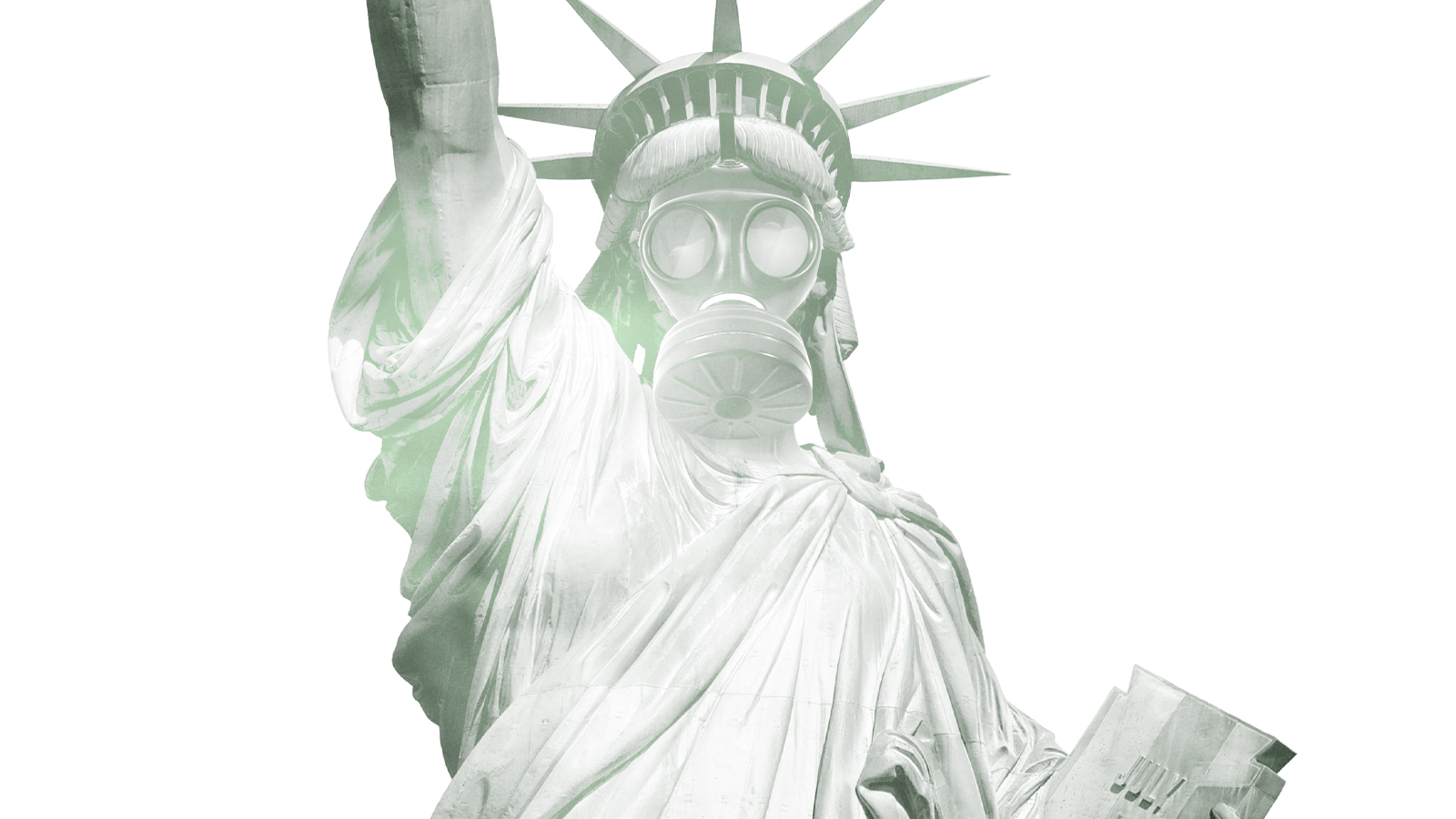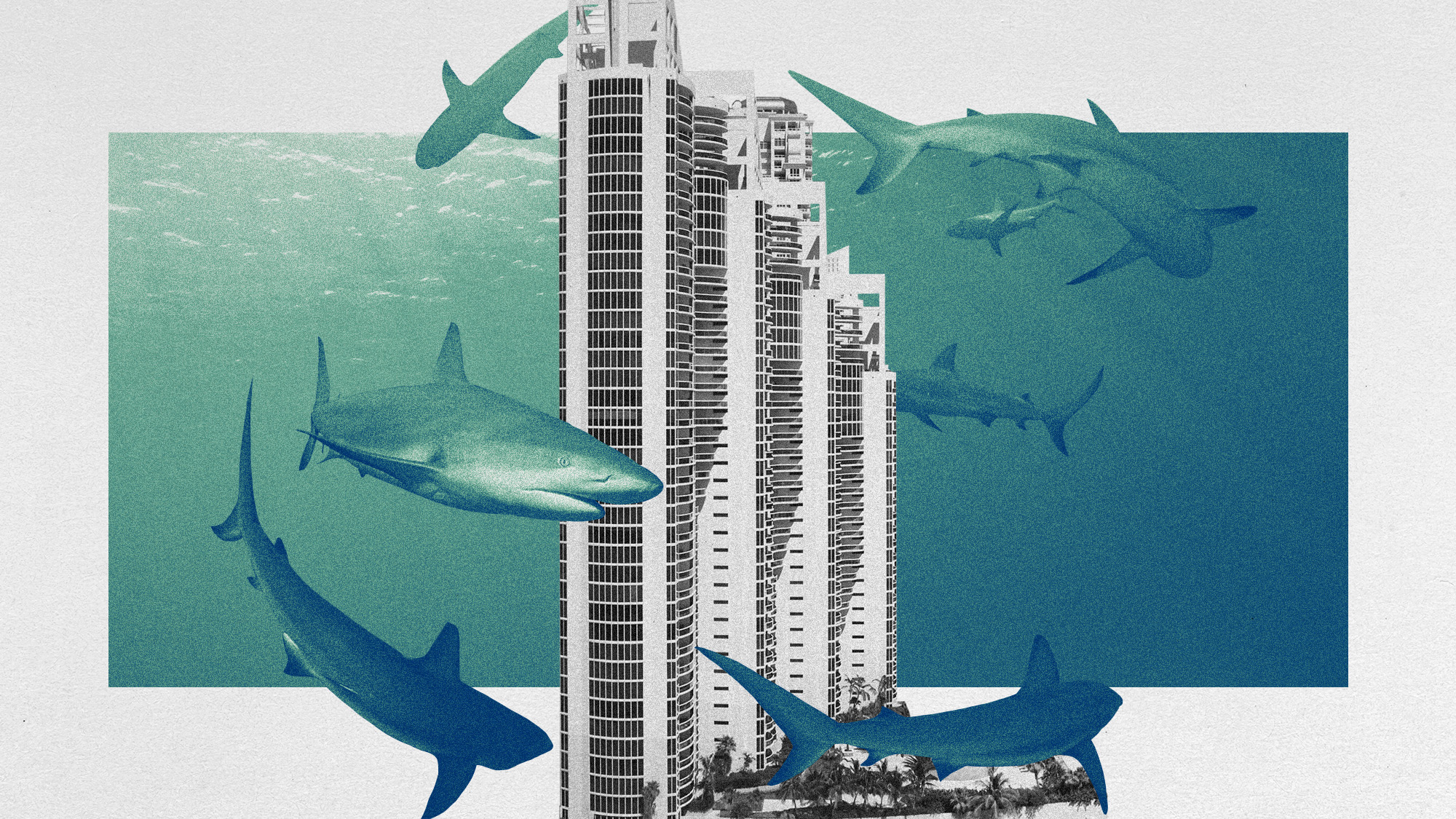America's shared smoke blanket


A free daily email with the biggest news stories of the day – and the best features from TheWeek.com
You are now subscribed
Your newsletter sign-up was successful
The Bootleg Fire in Oregon isn't just an Oregon problem. Canadian wildfire smoke doesn't just stay in Canada. And Siberian blazes are visible on other continents.
In New York City, residents woke up Tuesday morning to find the sky hazy and the skyline obscured because of smoke generated from blazes as far as 3,000 miles away. When they can be seen, the sun and moon appear to be blood red in locations far removed from the fire. These effects might seem cool or pretty, but all that fire pollution has prompted health alerts in distant cities like Toronto and Philadelphia. A map published by the National Oceanic and Atmospheric Association shows haze from the fire reaching to all but a few states, located in the far southeast United States.
"By the time that smoke gets to the eastern portion of the country where it's usually thinned out, there's just so much smoke in the atmosphere from all these fires that it's still pretty thick," a meteorologist with the National Weather Service told The Guardian.
The Week
Escape your echo chamber. Get the facts behind the news, plus analysis from multiple perspectives.

Sign up for The Week's Free Newsletters
From our morning news briefing to a weekly Good News Newsletter, get the best of The Week delivered directly to your inbox.
From our morning news briefing to a weekly Good News Newsletter, get the best of The Week delivered directly to your inbox.
"We're all in this together" can be an annoying cliché, one that has taken a real beating during the events of the last 18 months, seemingly disproved by our wildly varying notions about how to respond to and live with the coronavirus pandemic. But when it comes to climate change — which has fueled the droughts and high temperatures that created these fires — the cliché is absolutely true. Right now, there are very few places in the United States you can hide from wildfire smoke and the potential health effects that go along with it. It's not just smoke: As time passes, there will be increasing spillover effects as refugees from fires, drought, and coastal flooding have to find new places to live, even if temporarily.
My colleague Samuel Goldman argues today that the notion of "the common good" is all but dead, killed off by different notions of what that good is and how to achieve it. That doesn't negate the existence of common threats, however. The climate doesn't care about our political and philosophical differences, just like the coronavirus didn't. Sooner or later, the smoke will find us all.
A free daily email with the biggest news stories of the day – and the best features from TheWeek.com
Joel Mathis is a writer with 30 years of newspaper and online journalism experience. His work also regularly appears in National Geographic and The Kansas City Star. His awards include best online commentary at the Online News Association and (twice) at the City and Regional Magazine Association.
-
 How Democrats are turning DOJ lemons into partisan lemonade
How Democrats are turning DOJ lemons into partisan lemonadeTODAY’S BIG QUESTION As the Trump administration continues to try — and fail — at indicting its political enemies, Democratic lawmakers have begun seizing the moment for themselves
-
 ICE’s new targets post-Minnesota retreat
ICE’s new targets post-Minnesota retreatIn the Spotlight Several cities are reportedly on ICE’s list for immigration crackdowns
-
 ‘Those rights don’t exist to protect criminals’
‘Those rights don’t exist to protect criminals’Instant Opinion Opinion, comment and editorials of the day
-
 How climate change is affecting Christmas
How climate change is affecting ChristmasThe Explainer There may be a slim chance of future white Christmases
-
 Why scientists are attempting nuclear fusion
Why scientists are attempting nuclear fusionThe Explainer Harnessing the reaction that powers the stars could offer a potentially unlimited source of carbon-free energy, and the race is hotting up
-
 Canyons under the Antarctic have deep impacts
Canyons under the Antarctic have deep impactsUnder the radar Submarine canyons could be affecting the climate more than previously thought
-
 NASA is moving away from tracking climate change
NASA is moving away from tracking climate changeThe Explainer Climate missions could be going dark
-
 What would happen to Earth if humans went extinct?
What would happen to Earth if humans went extinct?The Explainer Human extinction could potentially give rise to new species and climates
-
 Bacteria can turn plastic waste into a painkiller
Bacteria can turn plastic waste into a painkillerUnder the radar The process could be a solution to plastic pollution
-
 Cautious optimism surrounds plans for the world's first nuclear fusion power plant
Cautious optimism surrounds plans for the world's first nuclear fusion power plantTalking Point Some in the industry feel that the plant will face many challenges
-
 Florida has a sinking condo problem
Florida has a sinking condo problemUNDER THE RADAR Scientists are (cautiously) ringing the alarms over dozens of the Sunshine State's high-end high-rises
